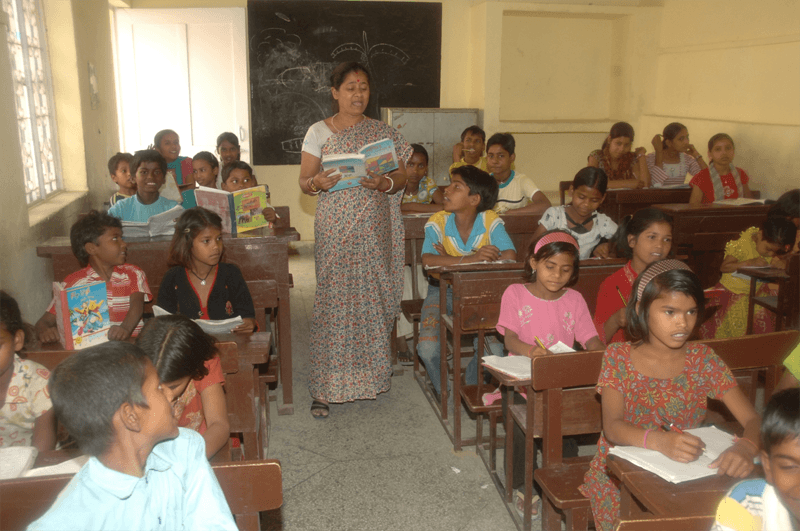The centre proposes to initiate special programmes for youth living in nearby slums. According to the Asian Development Bank (ADB), 44 million people migrate to cities in Asia every year. Everyday, 20,000 new dwellings and 250 km of roads are built to cope with the rising urban population. The process of urbanization has become a phenomenon which is inevitable. In fact it has gripped the entire human society. While the developed countries have almost completed the cycle of the process of urbanization during the last 500 years or so, the developing countries are vigorously engaged in exploring solutions to the problems created by a rather unplanned and haphazard urban population growth during last 100 years or so. The developing countries are repeating the history of urbanization of the developed countries in their own way in relatively much less span of time. The phenomenon is the same, though separated by time and space. However, one major consequence of the waves to the cities is the unplanned “population boom”.

Endemic Poverty and Its Consequences
A large number of migrants have no access to basic services and have been constantly involved in the struggle for survival. These are the people who migrate from the rural areas and settle down in slums, Jhuggis, and wherever vacant land is available. Some of them who cannot get even this are forced to lead their lives on city streets, pavements and in public places like parks, etc., perhaps looking daily for a place to spend the night. The most vulnerable group of the urban poor that is growing rapidly in big cities is street children and working children with or without a home. Many of them may be just the runaways from broken homes, allured by the city life and having no alternatives than staying on the streets. However, efforts are being made by Central and State Governments, Corporations and some NGOs to provide the basic services to them.
The forces of modernization, industrialization and urbanization coupled with the appalling conditions of poverty have adversely affected family life. The marital disharmony, separation or divorces, family tensions, deaths of parents, ill-treatments by step-parents and selling children as bonded labourers are some of the conditions that have brought a large number of children on the street. Most of these children do not have access to school education and those who have access to schools have given to absenteeism and dropoutism in the absence of the required support. These children are also deprived of their childhood rights and are exposed to several physical and social hazards.
Slum Women Literacy Programme

Some of the ladies are not able to reach the centre so the social worker from Sulabh they visit the Slums like Nanda Block, Nasir Pur, Madhu Vihar and provide basic education, knowledge of health and moral values.
Slum Women Tailoring Programme
In recent years Sulabh has steadily been building our capacity to create a truly great opportunity for those from the downtrodden families. People especially women who were once deprived of everything be it money, status or career are now encouraged to groom up their confidence and to become self-independent here at Sulabh Literacy Mission and fulfil their dream. Members and staff of Sulabh Literacy Mission leave no stone unturned by providing these women opportunity to learn and train themselves in various fields such as cutting, tailoring and basic education so that they can compete with the competitive world and earn their livelihood by exploring their skill and talent. These women majority of whom belong to the slum area work as domestic help in houses and after mid-day, they come to Sulabh to learn and develop skills so that in future they would not serve as domestic help and become self-employed.
Young girls mostly who were school drop-outs were counselled by sulabh literacy staff to join the ‘learn and earn’ training programme and now those who have undertaken training in this programme are able to earn money under the self-employed scheme.
Sulabh Literacy Mission is planning to visit more and more slum areas of Delhi and make women aware of the ‘learn and earn’ scheme for their upliftment as well as the upliftment of the society.
Types of Programmes For Slum Children

The main focus of the Sulabh programme is on free coaching of dropouts in education so that they may again join the mainstream of education, the school. The second focus is on those children, who get admission in schools, but their performance in classes is very poor and there is the possibility of their being dropped out in the absence of support. Sulabh is preparing these slum-dwelling children by giving additional input of education so that they may come at par with others studying in classes and care is taken so that they should not develop an inferiority complex.
The third focus under the programme is on those children who are roaming about without being exposed to any formal educational programme. A total of 500 students have been benefited under this activity since the initiation of the programme. The 4th area is training in useful simple skills to enable them to get additional income and/or supplement their parent’s income. Most of them are doing good business in their respective areas.
In the beginning, very few children from slum areas came forward to join the programme. Their parents were reluctant. But they were approached and persuaded. As a result, participation has increased over the years. During 2008-09, a total of 145 children participated in the programme. Among them, nearly one-fourth was non-student children (25%). The percentage of girl children was far larger (88%) than that of boys (12%). The emphasis of this programme is on the dropouts and to bring the enrolled students in different schools at par with the other students in their classes.
Coaching and are motivated to pursue their studies by appearing in different examinations. This helps them in getting better jobs in the community. The slum children who loiter in streets are encouraged and motivated to come to the Centre for informal education/ literacy programme by imparting to them functional literacy and information on personal hygiene and etiquettes and manners so that they can adjust themselves in the changing situations in the community. In the years to come, the programme is likely to be further expanded and intensified in terms of activities as well as the number of participants.
A New Programme
A new programme has been started in 2009. The focus is on enhancing proficiency in spoken and written English. Students from slums and of those belonging to the weaker section of the society already undergoing formal education are generally weak in this respect.
Special regular classes are being organized to enhance proficiency in spoken and written English for them. The special six-week summer programme is also being organized for those children, who for some reason are not able to attend regular classes. These programmes, excluding the vocational training,(skill training) are organized in the afternoon, utilizing the accommodation and other infrastructure of the Sulabh Public School. These groups of children participate in different activities from 2 p.m. to 5 p.m.


These programmes are flexible and designed to cater to the personal needs of slum children aged 5 to 15 years. The skill trainings are open to elder students and classes are conducted in both shifts. This includes basics of functional literacy, awareness of hygiene and sanitation, physical training, music and dance and skill development. The progress of these children is also evaluated and they are awarded certificates. Painting competitions are also held to encourage slum children.
The School’s Art and Crafts teacher also takes classes in painting. Prizes were given to the winners. Consolations prizes were also given to every participant to encourage them for future participation.

